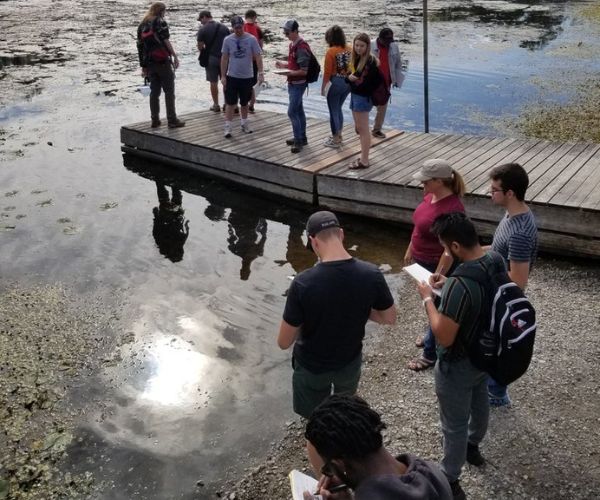Visit Carleton! Book your tour today.
Program Details
The Environmental Science program brings together the study of biology, chemistry, earth sciences and geography to enable its graduates to address complex and multidisciplinary environmental and conservation problems.
The Environmental Science Honours program is accredited by ECO Canada, which aids the graduates in obtaining the designation of Environmental Professional (EP), opening career opportunities for our students.
Graduates of Environmental Science with a concentration in Earth Science are eligible to apply for Professional Geoscientists Ontario (PGO) registration in Canada.
Concentrations
Students take courses in chosen areas of study and hone their skills in preparing research and thesis projects, working in teams and individually on current problems facing environmental science. Concentrations are available in Chemistry; Ecology, Biodiversity and Conservation; Earth Sciences; and Geomatics.
Capital Advantage
As the nation’s capital the Ottawa area has considerable environmental employment and research opportunities including at Environment Canada, Natural Resources Canada, the National Research Council and Agriculture Canada.
Work Experience
Learn about aquatic ecology, fish and wildlife conservation, groundwater protection and remediation, sustainable resource extraction and environmental monitoring and policy in lectures, field courses, hands-on laboratory work and/or Co-op. Conduct research and a thesis project on a specialized topic, working in teams and individually on current problems facing environmental science.

Get started in Carleton360 to receive tailored information on our programs, student services and community.

Career Outcomes
Explore your passions, refine new skills and discover the career that’s right for you.
Our graduates are very successful, with several continuing onto graduate school, government positions, industrial employment and a variety of consulting opportunities.

Sample Courses
ENSC - 2000 - Environmental Science Field Methods
A field-based course introducing students to practical methods in environmental science. Topics will include earth sciences, geography, biology, and chemistry related aspects of environmental sciences and will focus on quantitative techniques to assess environmental impacts and management. A supplementary fee will apply.
ENSC 2001 - Earth Resources and Natural Hazards: Environmental Impacts
Study and application of qualitative and quantitative techniques in environmental science, including study design, data collection and assembly, database manipulation, data analysis, and critically evaluating scientific information..
Visit the Undergraduate Calendar to view a comprehensive list of course offerings for this program and discover the exciting things Carleton students are learning in the classroom!

